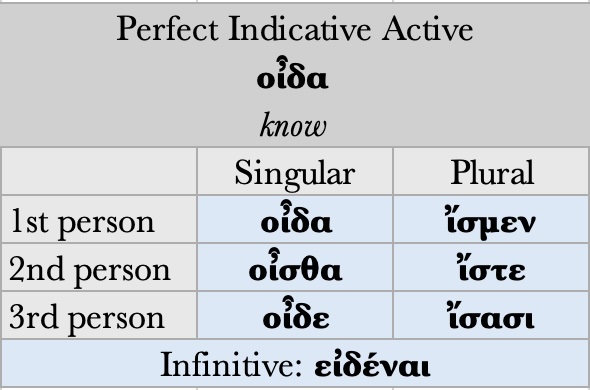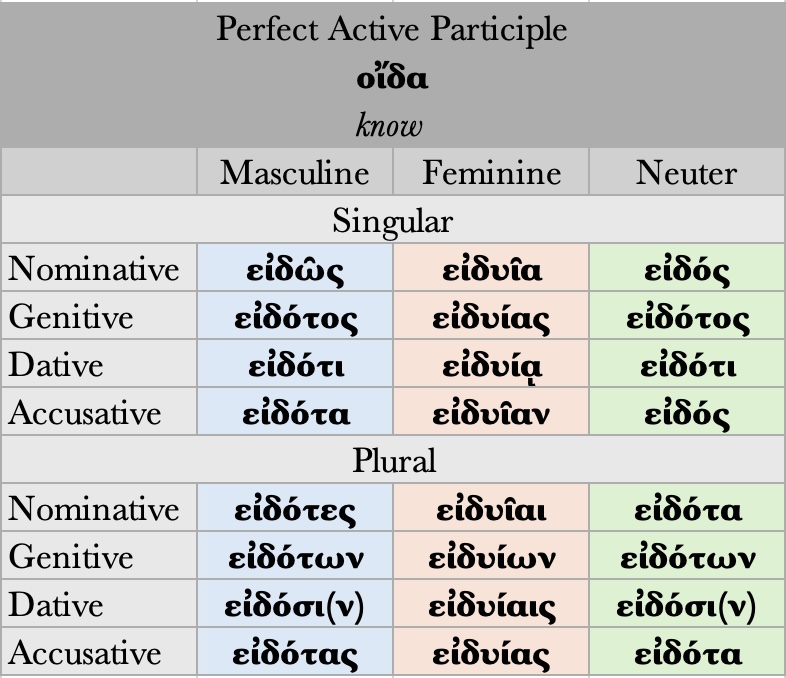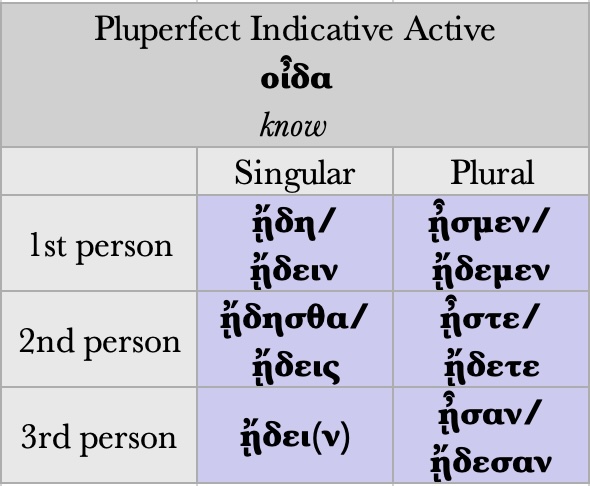44.13 The verb οἶδα know, is common in Greek. As a perfect tense verb, οἶδα literally means I have seen/found out. However, it regularly translates as know in the present tense:
- you have seen/found out (perfect), so now you know (present)
Because of its relative antiquity, it retains some irregularities in its formation that must be memorized.
(G 386)
Note: The Second Singular Imperative is ἴσθι
(G 386)
The PLUPERFECT literally means had seen/found out, and so regularly means knew (in the sense that what you had seen, you knew and understood).
- Read More
-
The verb stem of οἶδα and ᾔδη (ἐ–εἰδη) is ἰδ-/ εἰδ-/ οἰδ-. Originally the stem was ϝιδ-/ ϝειδ-/ ϝοιδ– (cf. Latin video). Note that this is also the verb stem of εἶδον I saw (originally ἔϝιδον) (S 431).
Charts JPG






